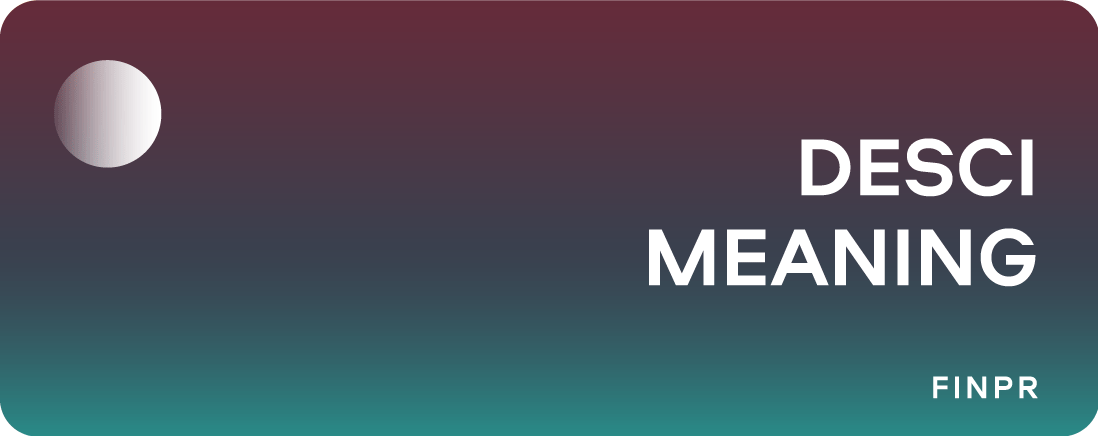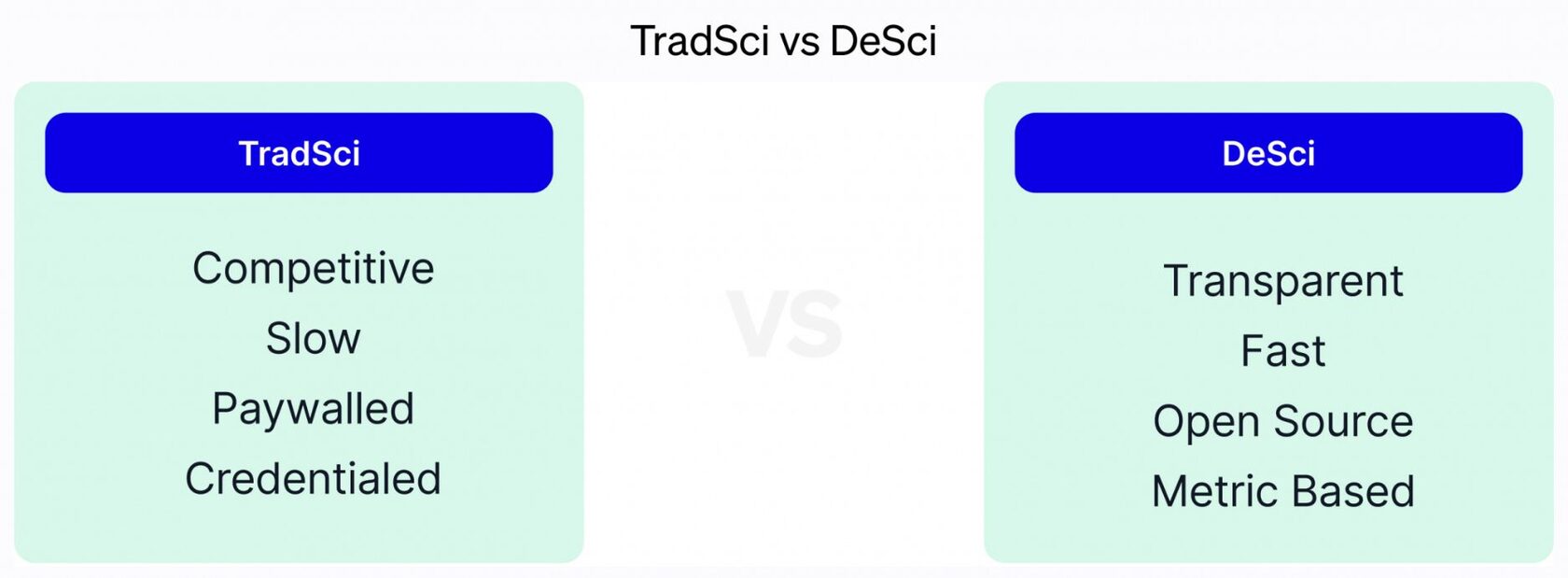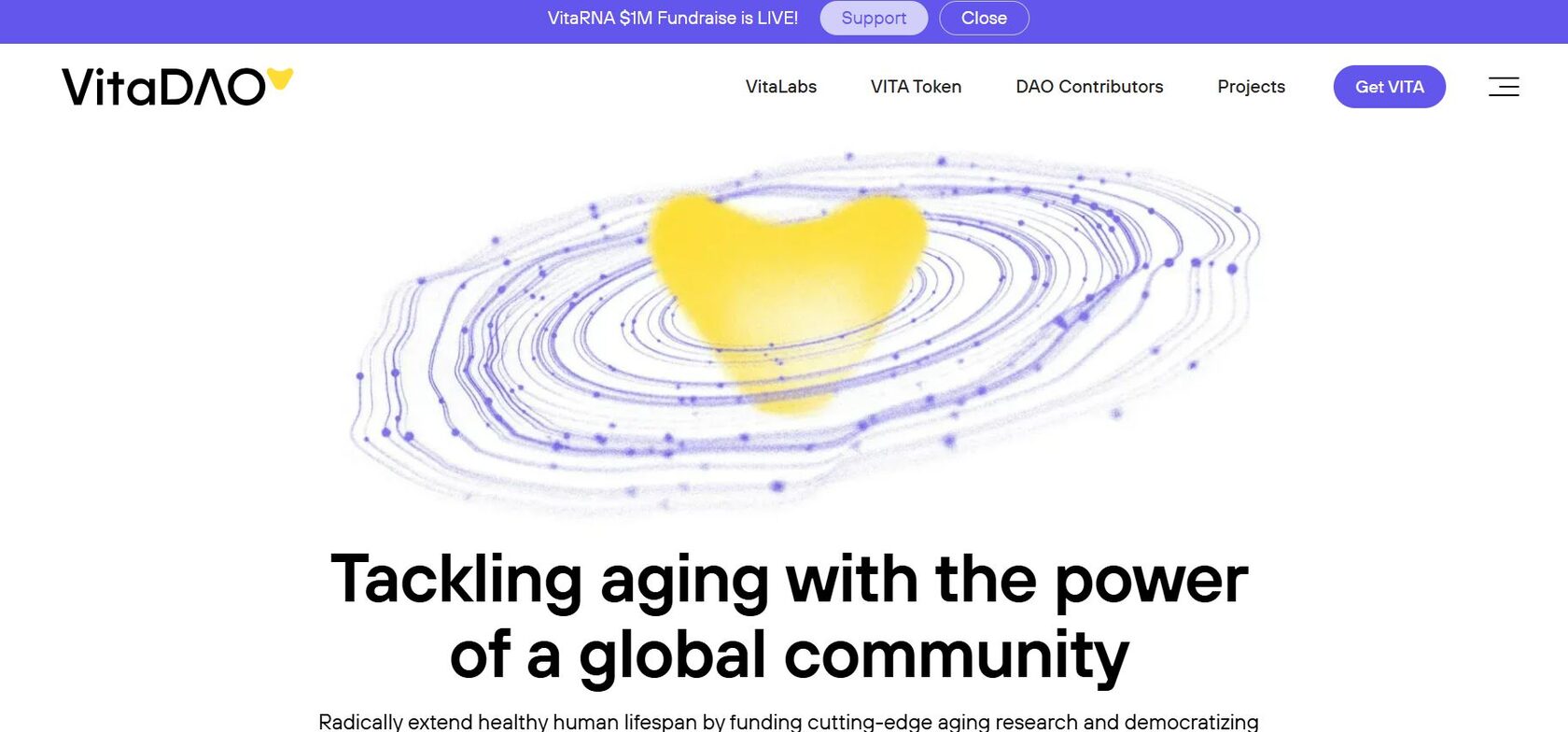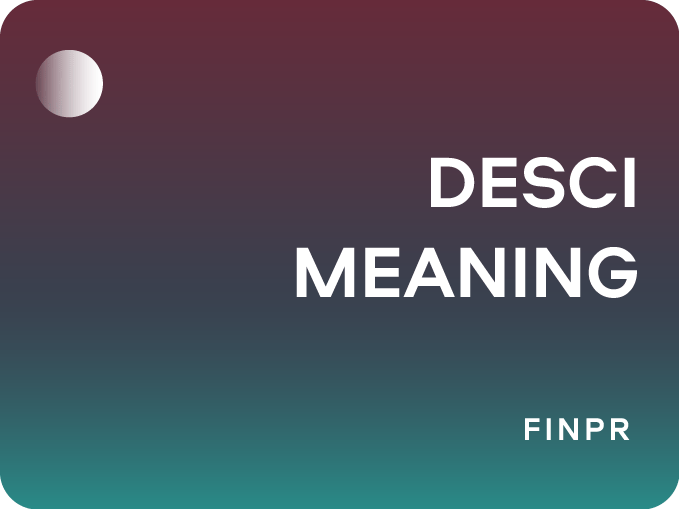
Science has long been the driving force behind human progress, from medical breakthroughs to technological revolutions. However, the traditional scientific model is plagued by inefficiencies — centralized control over funding, limited access to research, and a slow, bureaucratic publishing system. These challenges have fueled the rise of DeSci (Decentralized Science), a movement leveraging blockchain technology, decentralized networks, and Web3 principles to create a more open, transparent, and community-driven approach to scientific research.
Discussions about the potential of DeSci are gaining traction across various crypto forums, where blockchain enthusiasts and researchers exchange ideas on funding, data integrity, and peer review mechanisms.
But how does it work, and what impact could it have on the future of science? This article explores the meaning of DeSci, its core principles, benefits, challenges, and the groundbreaking projects shaping its evolution.
What is DeSci (Decentralized Science)?
Decentralized Science, or DeSci, is an emerging movement that leverages blockchain technology, decentralized networks, and Web3 principles to create a more open, transparent, and community-driven approach to scientific research. It aims to address the inefficiencies and centralization found in traditional scientific institutions, such as paywalled journals, restricted access to funding, and bureaucratic barriers that slow down innovation.
At its core, DeSci represents a shift toward distributed, permissionless, and trustless scientific collaboration. It removes gatekeepers by allowing researchers, independent scientists, and even the general public to participate in the funding, execution, and publication of research without the constraints of traditional academia or corporate control.
Core Tenets of DeSci
- Open-Access Knowledge – Research findings, data, and methodologies are publicly available, removing paywalls and allowing for greater knowledge-sharing.
- Decentralized Funding Models – Scientists can raise funds directly from the community through blockchain-based DAOs or crowdfunding.
- Blockchain-Verified Transparency – Research is recorded on immutable ledgers, ensuring that data integrity is preserved and results cannot be manipulated.
- Incentivized Collaboration – Researchers, reviewers, and contributors can be rewarded with tokens, NFTs, or cryptocurrency, incentivizing high-quality contributions.
- Peer Review without Gatekeepers – A more democratic peer-review process where the scientific community, rather than centralized journals, verifies and validates research findings.
Why DeSci Matters
DeSci represents a paradigm shift in how scientific knowledge is created, shared, and funded. By removing financial and institutional barriers, it empowers independent researchers, fosters global collaboration, and accelerates scientific progress in fields like biotech, AI, and medicine. With blockchain providing transparent and verifiable research, DeSci has the potential to solve many of the problems that hinder innovation in traditional science.
Through asset tokenization, DeSci projects can convert intellectual property, research findings, and lab resources into tradable digital assets, enabling new financial models for scientific innovation.
The movement is still in its early stages, but with projects like VitaDAO, LabDAO, and Molecule already making waves, DeSci is paving the way for a more democratized and decentralized scientific ecosystem.
The Problems with Traditional Science

While science has been the foundation of human progress, the traditional scientific system is riddled with inefficiencies and barriers that hinder innovation, limit access to knowledge, and create financial and institutional dependencies. From restrictive publishing models to funding bottlenecks, these challenges slow down scientific discovery and prevent many talented researchers from making an impact.
1. Centralized Control and Gatekeeping
Scientific progress is often dictated by a small number of institutions, publishers, and funding bodies, creating bottlenecks in research accessibility and funding distribution.
- Limited Access to Funding – Scientific research is predominantly funded by government grants, academic institutions, and corporate sponsors, often leading to political and financial biases in research priorities.
- Elitist Publishing Models – Many scientific journals operate behind expensive paywalls, requiring costly subscriptions that prevent independent researchers, students, and the public from accessing critical knowledge.
- Institutional Monopolies on Research – Large universities and corporate labs control vast amounts of research data, limiting public access and slowing down open collaboration.
2. The Reproducibility Crisis and Data Opacity
One of the biggest problems in modern science is the lack of reproducibility—many studies cannot be replicated, leading to questions about their validity.
- Lack of Open Access to Data – Scientific findings often lack transparent data-sharing, making it difficult for other researchers to verify and build upon previous studies.
- Incentivizing Positive Results Over Truth – Scientists are under pressure to publish statistically significant results, which sometimes leads to biased reporting, selective data use, or even misconduct.
- Flawed Peer Review Process – Peer review is controlled by a small number of experts, leading to biases, conflicts of interest, and gatekeeping, where innovative but controversial ideas are suppressed.
3. Slow Innovation and Bureaucratic Barriers
The traditional scientific ecosystem is rigid, slow-moving, and often discourages risk-taking.
- Cumbersome Grant Processes – Researchers spend months or even years applying for grants, which slows down their ability to focus on actual scientific work.
- Bureaucratic Overload – Scientists working within universities and institutions must navigate administrative red tape, leaving less time for real research.
- Resistance to Disruptive Ideas – Many scientific fields are controlled by established experts who resist radical new ideas, making it difficult for innovative research to gain traction.
4. Unequal Access to Scientific Knowledge
The current system favors well-funded institutions and developed countries, leaving researchers from developing nations, independent scholars, and citizen scientists without equal opportunities.
- Expensive Journal Subscriptions – Paywalled research prevents low-income universities, startups, and independent scientists from accessing the latest discoveries.
- Geographic Disparities in Research Opportunities – Scientists in wealthier nations have access to more resources, labs, and funding than those in the Global South.
- Corporate Control Over Innovation – Pharmaceutical companies, biotech firms, and other private entities prioritize profit-driven research, sometimes withholding important scientific advancements from the public.
5. The “Publish or Perish” Culture
Academia forces scientists into a system where career success is tied to the quantity of publications rather than the quality of research.
- Quantity Over Quality – Scientists must publish frequently to secure funding and promotions, leading to rushed, lower-quality studies.
- Short-Term Thinking – Long-term, high-risk research is often ignored in favor of studies with quick, publishable results.
- Mental Health Impacts – The pressure to constantly publish leads to stress, burnout, and ethical compromises among researchers.
The Need for a Better System
These systemic issues stifle innovation, exclude talented individuals, and slow down scientific progress. This is where Decentralized Science comes in — offering solutions like open-access research, community-driven funding, and blockchain-powered transparency to create a more fair, efficient, and innovative scientific ecosystem.
How DeSci Works: Core Components and Technologies
DeSci is an innovative movement that leverages blockchain and Web3 technologies to transform the traditional scientific research landscape. By decentralizing various aspects of research, DeSci aims to create a more transparent, accessible, and collaborative environment for scientific discovery.
Core Components and Technologies of DeSci
- Blockchain Technology: At the heart of DeSci is blockchain, a decentralized ledger that ensures immutable and transparent records of scientific data, publications, and transactions. This technology enhances data integrity, traceability, and verifiability, fostering trust among researchers.
- Smart Contracts: These self-executing contracts automate agreements between parties in scientific collaborations. They manage data sharing, funding distribution, and contribution attribution transparently and without intermediaries.
- Tokenization and Incentive Mechanisms: DeSci introduces token-based systems to reward participants for their contributions, such as data sharing, peer review, and research publication. Tokens can represent ownership of research outputs, enabling new monetization avenues and recognition for researchers.
- Decentralized Data Storage: Instead of centralized repositories, DeSci utilizes decentralized storage solutions like the InterPlanetary File System (IPFS) to securely and redundantly store scientific data across multiple nodes, reducing the risk of data loss or tampering.
- Decentralized Peer Review Systems: By implementing decentralized peer review, DeSci aims to make the evaluation process more transparent and efficient. Reviewers are incentivized through token rewards, reducing biases and enhancing the quality of scientific assessments.
How DeSci Works
DeSci operates by integrating these core components to address challenges in traditional scientific research:
- Funding: Traditional research funding is often limited and competitive. DeSci introduces decentralized funding mechanisms, such as crowdfunding and token-based systems, allowing researchers to raise funds directly from a global community. This democratizes access to resources and supports a wider array of research projects.
- Data Sharing and Accessibility: By storing research data on decentralized platforms, DeSci ensures that information is openly accessible, immutable, and tamper-proof. This fosters collaboration and allows for more robust validation and replication of scientific findings.
- Peer Review and Publication: DeSci proposes a decentralized peer review system where reviewers are selected from a global pool of experts. Reviews are conducted openly on the blockchain, providing transparency and accountability, and reducing biases and conflicts of interest. Additionally, DeSci promotes open access publishing, making research papers freely available to anyone.
By leveraging these technologies, DeSci seeks to create a more open, efficient, and equitable scientific ecosystem, addressing many of the limitations inherent in traditional research models.
Major DeSci Projects and Initiatives
1. VitaDAO

Focus: Longevity and Healthspan Research
Overview: VitaDAO is a decentralized autonomous organization (DAO) dedicated to funding and advancing research aimed at extending human lifespan and healthspan. By utilizing blockchain technology, VitaDAO democratizes the funding process, allowing community members to propose, evaluate, and fund longevity research projects. Contributors receive VITA tokens, granting them governance rights within the organization.
Key Features:
- Community-Driven Funding: Researchers can submit proposals, and token holders vote on which projects receive funding.
- Tokenized Governance: VITA tokens enable holders to participate in decision-making processes, ensuring a decentralized approach to research prioritization.
- Intellectual Property (IP) Management: Research outcomes can be tokenized as IP-NFTs, allowing for transparent and equitable distribution of intellectual property rights.
2. Molecule
Focus: Decentralized Biotech Funding
Overview: Molecule serves as a marketplace connecting researchers with funding by turning intellectual property into liquid, investable assets. Through the platform, scientists can tokenize their research projects as IP-NFTs, facilitating direct investment and collaboration opportunities.
Key Features:
- IP Tokenization: Enables the creation of IP-NFTs, allowing for fractional ownership and investment in research projects.
- Decentralized Funding: Facilitates direct connections between researchers and potential funders, bypassing traditional funding gatekeepers.
- Collaborative Ecosystem: Fosters partnerships between scientists, investors, and institutions to accelerate innovation.
3. LabDAO
Focus: Decentralized Laboratory Services
Overview: LabDAO is building a decentralized network of laboratories, providing researchers worldwide with access to essential tools and services. By leveraging a token-based system, LabDAO aims to democratize access to experimental resources, enabling scientists to conduct research without the constraints of traditional lab infrastructure.
Key Features:
- Resource Sharing: Allows researchers to access and share laboratory equipment and services through a decentralized platform.
- Token Incentives: Utilizes tokens to incentivize participation and resource contribution within the network.
- Global Collaboration: Promotes international cooperation by removing geographical and institutional barriers to research.
4. AntidoteDAO
Focus: Cancer Research Funding
Overview: AntidoteDAO is a decentralized community focused on funding various cancer initiatives, including research, patient support, and charitable activities. The organization employs blockchain technology to facilitate transparent crowdfunding and governance, enabling token holders to vote on funding proposals.
Key Features:
- Transparent Fund Allocation: Ensures that all donations and funds are tracked on the blockchain for accountability.
- Community Governance: Empowers token holders to decide which cancer-related projects receive support.
- NFT Fundraising: Utilizes NFT collections to raise funds and engage the community.
5. ResearchHub
Focus: Open-Access Scientific Publishing
Overview: ResearchHub aims to accelerate the pace of scientific discovery by providing an open-access platform where researchers can share papers, data, and discussions. The platform incentivizes contributions through a token system, rewarding users for publishing, reviewing, and curating scientific content.
Key Features:
- Token Rewards: Distributes tokens to users who contribute valuable content and peer reviews.
- Open Collaboration: Encourages scientists from various disciplines to collaborate and share insights freely.
- Decentralized Peer Review: Implements a community-driven review process to enhance transparency and trust in scientific publishing.
Final Thoughts
DeSci is reshaping the landscape of scientific research by addressing the limitations inherent in traditional systems. As the DeSci movement continues to gain momentum, it holds the promise of making scientific research more accessible, efficient, and inclusive. By integrating DeSci with emerging Layer 3 blockchain solutions, researchers can achieve even greater scalability, lower transaction costs, and enhanced data security for decentralized scientific publishing and collaboration.




